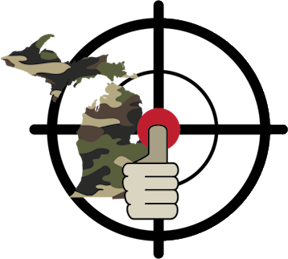Terms We Use
Following are a list of terms that we use on this page and/or in our courses, and how we define them.
Concealed Pistol License (CPL)
A CPL is the license issued to Michiganders, allowing them to carry a concealed pistol (handgun). There are specific requirements that must be met to apply for the license and various restrictions that prevent the license from being issued. Michigan has not enacted complete Constitutional Carry, only Constitutional Open Carry, so without a CPL, a Michigander cannot legally conceal a pistol with few exceptions. For more on CPLs and what is considered concealed in Michigan, click the link in the header above.
Everyday Carry (EDC)
EDC is a group of purpose-selected items, including both Active and Passive Personal Protection Devices (PPD), that we usually carry on our person every day to aid us in our daily lives and for the personal defense thereof. Items with multiple purposes (dual-purposed items) are especially useful. It’s important to remember that the purpose of EDC is to carry items that you use or may need every day and not to carry anything and everything you might have a need for one day. Regular EDC Loadouts will vary from individual to individual but will also vary slightly when tailored to situations to meet legal restrictions.
Prohibited Premises
When talking Michigan Firearms Law, a Prohibited Premises is a property where entry with a firearm is restricted or completely prohibited. Federal law prohibits carrying a firearm, whether open or concealed, in most federal buildings, including courthouses, post offices, military bases, and federal prisons. This essentially prohibits firearms on most property owned or leased by the federal government, including parking lots thereof, if that property is owned by the federal government as well; but there are a few exceptions. Under Michigan law, firearms are prohibited in all jails and lock-ups; and there are also several categories of premises where entry with a firearm is prohibited. Each category is dependent on the activity you are engaged in. For the most up to date list of each of these categories, please click on the links below. In addition, the owner or lessee of private property, including businesses, can prohibit entry to that property with a firearm by conspicuously posting a sign at each point of entry. Although there are no other specific requirements for such a sign, the wording does matter, for instance, a sign that says no weapons on the premises, like one might see posted at many hospitals, prohibits not just firearms but also includes knives, etc., whereas a sign using the term firearms only, simply prohibits firearms. In both instances however, CPL holders must still comply with the sign. In contrast however, a sign that specifies open carry, like seen at several “box stores” in Michigan, would still allow CPL holders to carry concealed on the premises. Violating a sign barring entry to real property can result in the violator being charged with trespass under MCL 750.552.
Prohibited Premises – Concealed Carry (MI)
Prohibited Premises – Open Carry (MI)
Prohibited Premises – Federal Property
Prohibited Premises – National Parks
Self-Defense
We define Self-Defense as using any and all appropriate means available to stun or stop your attacker as quickly as possible so you can get away to safety. Remember that self-defense is not retaliation or even mutual combat, but a necessary application of extreme violence, used just long enough to provide you a window of relief from attack. For a legal definition of self-defense in the state you reside, we suggest you seek an attorney registered with that State’s Bar Association, who specializes in self-defense law.
Situational Awareness
Simply put, Situational Awareness is the practice of being acutely aware of your immediate environment at any given moment and continuously analyzing it to proactively navigate decisions and actions. Individuals who consistently practice situational awareness in their daily lives are said to be Living Aware. Once learned and routinely practiced, situational awareness is a part of your conscious competencies, just like other skills you don’t have to think about to perform.
